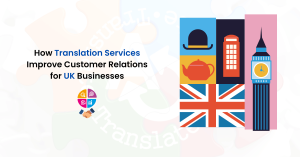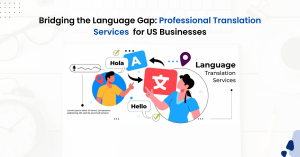As of today, one of the most popular websites about translator scammers contains 1576 scammers – And the list is growing every day.
In economic times like these, it might seem very appealing to people who speak more than one language to set themselves up as freelance translators. While this is absolutely legitimate, others try to lead the market by claiming to have obtained outstanding qualifications and years of professional experience in the field. The most common fraud related to the translation industry, however, seems to have become identity theft.
The procedure appears to be the following:
- Scammers steal CVs that have been published by experienced professionals on their profiles on networks like TranslatorsCafé.com and ProZ.com.
- Next, they either create a new CV using copy & paste or they simply alter the email addresses and sometimes names on the original CV to link it to themselves.
- Afterwards, scammers send emails to hundreds of agencies and possible clients, asking them for work and attaching the faked or stolen CV.
- If a scammer is offered a job, they will most likely complete it using machines like Google Translations. In case of an upfront payment, there will probably never even be a translation.
Not only do scammers take away jobs from real professionals, they also affect their victim’s reputation by providing poor quality translations in their name.
Can it get any worse? Yes. Scammers do not only harm real translators but also their clients and professional agencies.
One of the many cases circulating on the internet is about an agency becoming suspicious of one of theirfreelancers and refusing to make a payment until receipt of proof of ID and some references. The scammerrefuses and instead threatens the agency to post on every network and to tell every translator they know about this agency not paying their freelancers, unless of course, they immediately make the payment.
Click these links to read about two of these cases:
- The noose tightens around the scammers’ necks
- Identity theft goes escalating
Here are some signals to look out for in order to prevent becoming the victim of a translation scammer:
- Gmail email addresses: While having an email address ending with @gmail.com does not at all mean one is involved in fraud, most scammers hide behind these addresses as they cover their geographic location. Trying to look up an IP address of a Gmail account always navigates you to Google servers in the USA.
- Document’s author does not match the freelancer’s name: If a freelancer sends you their CV or other files as a Word document, you can look up the author in ‘Properties’. In case of a scam, you might for example find Arabic words and letters in Properties of a document sent by someone with an English name. This could imply that the document is stolen and has been modified or simply been made up.
- Suspicious CV content: While poor English in a CV is not necessarily a sign for a scam, it does look suspicious coming from someone who claims to be a native English speaker. Also, repetitions of content and incoherent formatting within the document imply that the author might have used a lot of copy & paste creating this CV. Furthermore, some scammers might especially emphasise the payment methods they accept.
If you are suspicious about something or someone, make sure to always Google their name. Maybe they are already subject of numerous forums or websites about scammers.
You can also check if the person is listed in the Scammers Directory, created by João Roque Dias, who archives names and email addresses used in cases of translation fraud, currently listing 1576 translator scammers.
This applies not only to translators but also to other freelancers such as copyrighters, proof-readers, web developers and graphics designers. Scammers might steal their identities and use similar techniques to get work in those areas.
TRANSLIT takes spam and scam very seriously and uses verification procedures before hiring and assigning any work to recruited freelancers. Personal details, Facebook and LinkedIn pages are being checked. In some cases Garda vetting procedures take place. In addition, freelancers have to sign confidentiality, non-disclosure and professional conduct agreements before they are given any work. TRANSLIT monitors the blacklists of agencies and freelancers.
Also view: Beware of fake translation agency scammers
Author: Antonia Liebl







